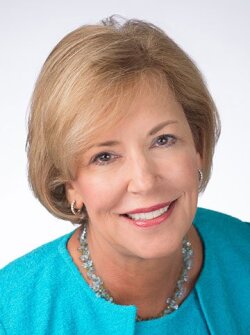
|
| Stephanie Hirsh |
I have worked for 30 years at Learning Forward and that has required a tremendous amount of travel. On every trip, I ask the people I meet to tell me about their schools. While my data collection methods are quite unscientific, my findings are very similar to those highlighted in national polls. Taxi drivers who have children in school are typically proud of their local schools and the experience they are providing their children. On the other hand, taxi drivers who don’t have children in school share concerns about public schools in general. From their perspective, the government fails to invest enough, teachers don’t care enough, and parents are absent. Since I have never met a person with children in school who doesn’t care deeply about their success, common perceptions about “other parents” is always very troubling to me.
The contrast between how my informal respondents perceive the quality of their local schools vs. how they perceive schools in the U.S. in general is always so interesting and one that plays out in our national polling when the public is asked to rate our public schools. For example, note the findings from this year’s PDK Poll: “As in past years, parents rate their own children’s schools quite highly -- 70% give them an A or B grade. The public overall gives lower ratings to their local schools, 43% A’s or B’s, and the nation’s schools as a whole receive much lower ratings still, 19% A’s or B’s.”
Why should we care about this disparity in how the public perceives schools? First and foremost, our responsibility is to ensure all students have effective learning experiences every day, and accomplishing this goal requires that our entire society be committed to supporting a great public school system. Great public schools demand sustained investments in teaching and learning. At the same time, educators who serve our most vulnerable children require more. We must increase the understanding of and appreciation for this equation even as we teach citizens about all the elements of an effective public education and the benefits to society and to people individually.
If you agree, then I ask you to take one of the following actions this school year. If you do so, or have other suggestions to share, please let us know.
Share your best stories about your neighborhood schools. The best news is local and we have incredible opportunities to elevate the good news we want others to hear. This year, consider telling stories about the following:
- What teachers are learning so that students perform better this year than last.
- How students are using new technologies and tools to demonstrate new learning.
- How students and educators are giving back to their local communities.
- How your school is reducing inequities in access to great teaching and learning.
Engage your senior citizens in your school. Recognize that your retired neighbors often have the most time to discuss the status of public education and may not have the latest on-the-ground information. We know that people invest in causes where they believe their opinions matter, they are needed, and where they think they can make a difference. Are there ways that you can leverage the experience and networking power of senior citizens to strengthen your school community? What would local senior citizens say if they were invited once a month to visit the school, have lunch with students, or tutor students in the library? What if they were offered the opportunity to lend their expertise on public relations, leadership, advocacy, finance, operations, or infrastructure? And then what if they were asked to help with increasing the support for the school within the community? This is a strategy I have just recently leveraged in my own circles, having recognized how passionate and ready to work some of my experienced networks are.
Finally, educate your local, state, provincial, and federal politicians. From personal experience I know it is a big challenge to increase taxes for local schools. As a former school board member, I certainly recognized that my constituents did not elect me to raise their taxes. The same statement would be repeated by your state and federal representatives. So your task is to make it impossible for policymakers -- and community members who vote -- to say no to investing in public schools. Start by:
- Sending regular updates on the great things happening in your school for your students, community, and faculty, with a focus on outcomes.
- Sending notes of appreciation for their support of public education. Serving as a policymaker is a tough job - and I can tell you politicians rarely hear “thank you.”
- Getting them or their staff members to visit your school to observe great teaching and learning in action and to hear from students and teachers themselves about how much their support matters.
Local, state, provincial, and federal investments are critical to supporting educators to build the knowledge and skills they need to help all students reach their potential. If policymakers don’t hear about the impact of those investments, chances are next time a vote comes up, it will be easy to compromise and give those dollars to some other important cause. Please make it a priority this year to share a great local story about teaching and learning.
I wish everyone an amazing school year. Thank you to everyone who is dedicating your life to the most noble profession there is -- your legacy is in those faces staring at you every day.